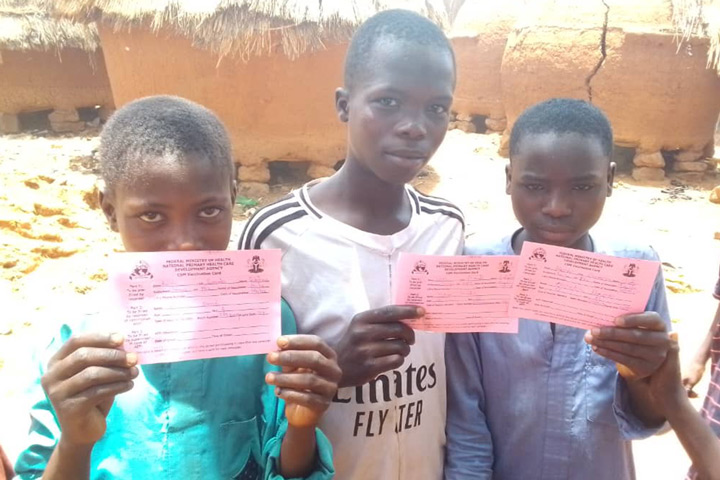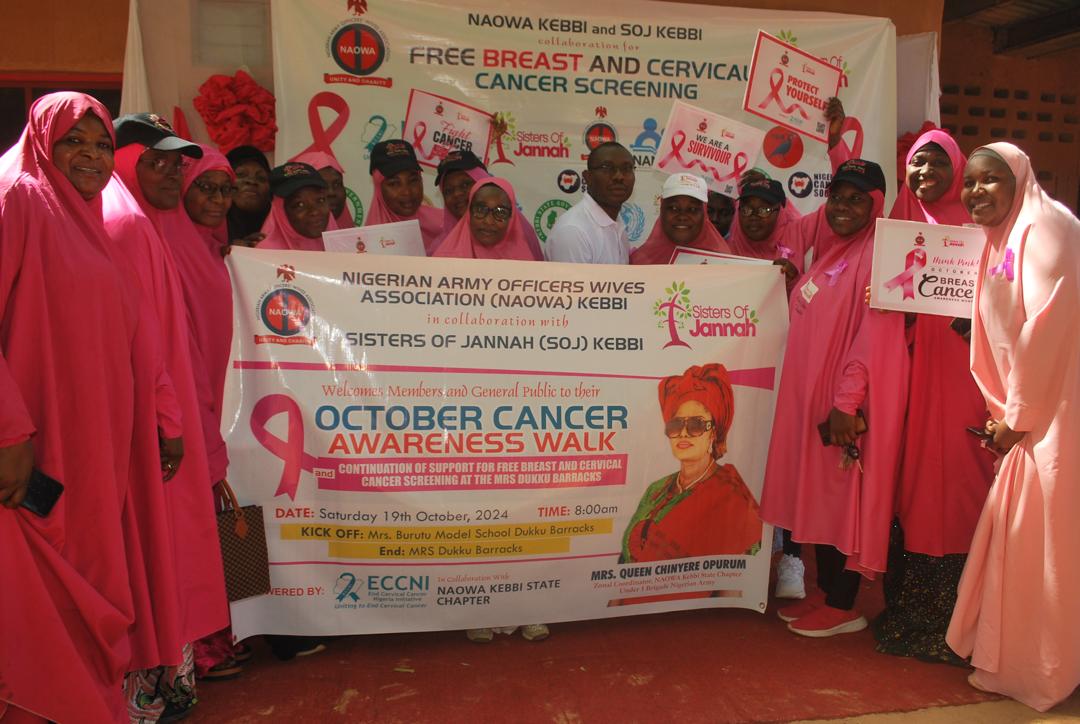In Kaduna, Nigeria, all hands are on deck to fight an mpox outbreak
Massive turnout for the mpox vaccine is slowing the spread of the virus in the northern Nigerian city, raising hopes among residents after weeks of alarm.
- 9 October 2025
- 6 min read
- by Eric Dumo , Alex Uangbaoje
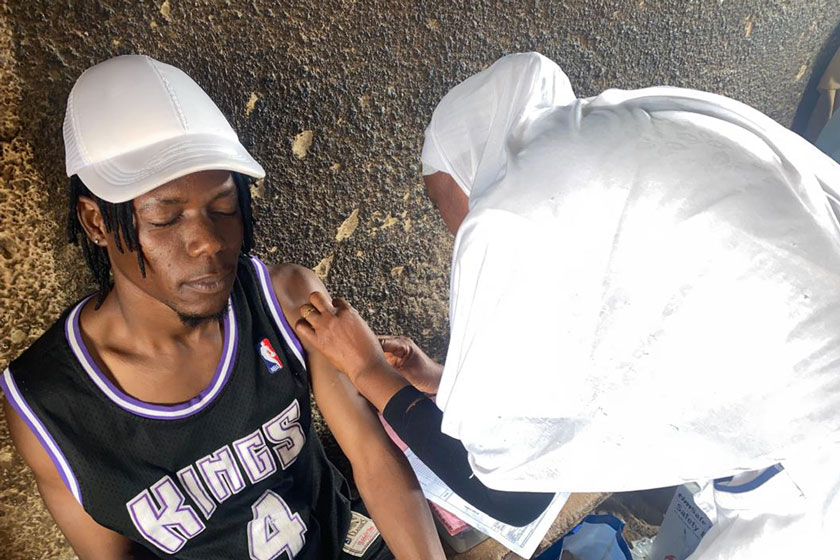
Amos Kintaro, 60, knows to appreciate what it means to be able to move around freely.
For many weeks following an encounter in March 2025, the retired government worker mostly confined himself to his two-bedroom apartment in Romi, on the outskirts of Kaduna city.
Kintaro had been helping a gunshot victim seek medical care at a hospital in the city that fateful month, when he contracted a disease. Rashes and blisters popped up across most parts of his body in the days after the incident. Laboratory tests at a government facility in Abuja where his sample was taken to later revealed that the illness was mpox.
Though medications administered by doctors at the hospital he visited for treatment cured him of the virus, the 60-year-old says the experience left a lasting, and unwelcome, impression.
“A doctor wrote drugs for me even before the test result was out, and they worked very well on me. The rashes and blisters started drying up,” he recalled. “In order not to expose people around me to danger of the disease, I decided to quarantine myself for a period. I stopped going to church or other public places. I mostly stayed around my house.”
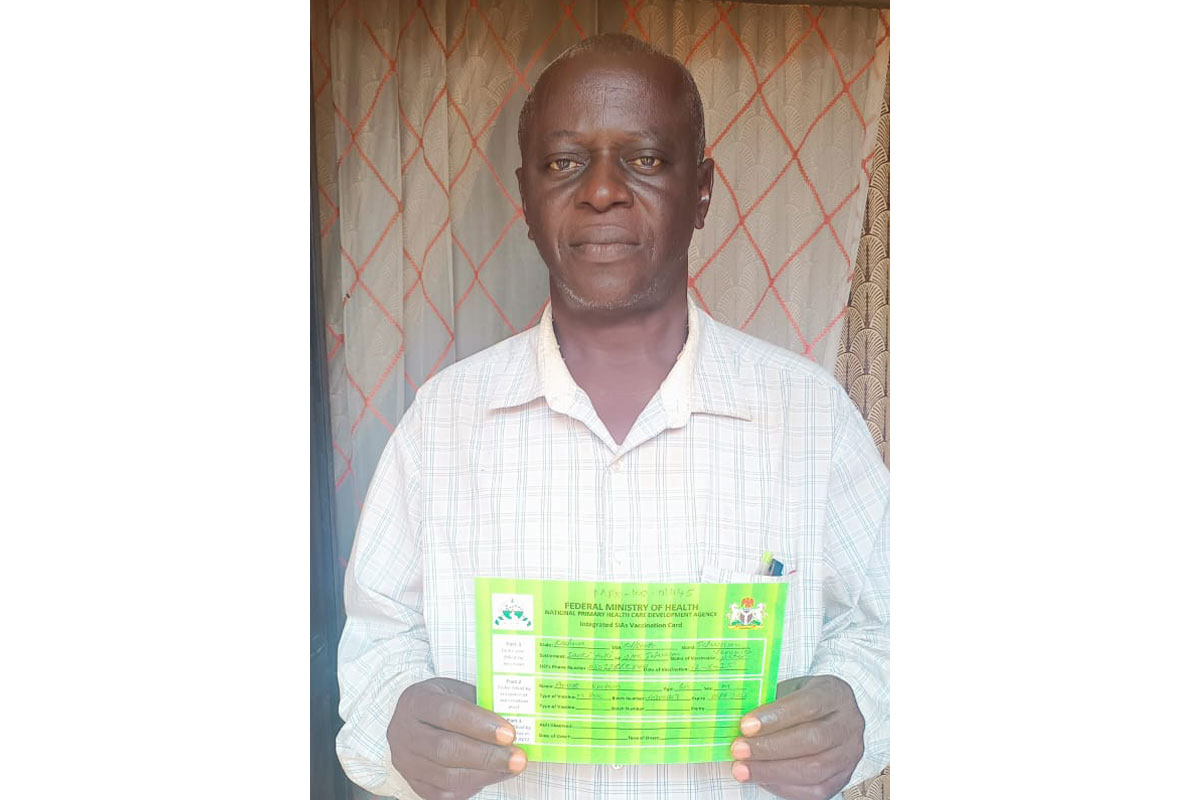
The arrival of the vaccine – which rolled out in Kaduna, and several other Nigerian states in August – helped calm his anxieties at last. “I am happy because it has given me more courage and allowed me to freely move around without fear of people getting contaminated.
“I joined other community leaders to encourage people to take the vaccine in our area when medical workers brought it here in August,” Kintaro added.
“More than just protection” for marginalised groups
The mpox vaccine couldn’t have come at a better time for Ibrahim Haruna, a 66-year-old leader of persons with special needs in Kurmin-mashi, a community in the southern part of Kaduna. As a member of a group often discriminated against by society, and which is often deprived of quality healthcare, the free vaccine was more than just prophylaxis for Haruna. It was a scarce dose of health justice.
“I was actually recovering from malaria fever in the week before the mpox vaccination took place in our community. So, when I heard about the mpox vaccine and was told that it will protect us from contracting the disease, which was already causing panic in the entire state, I was excited and didn't hesitate to take it.
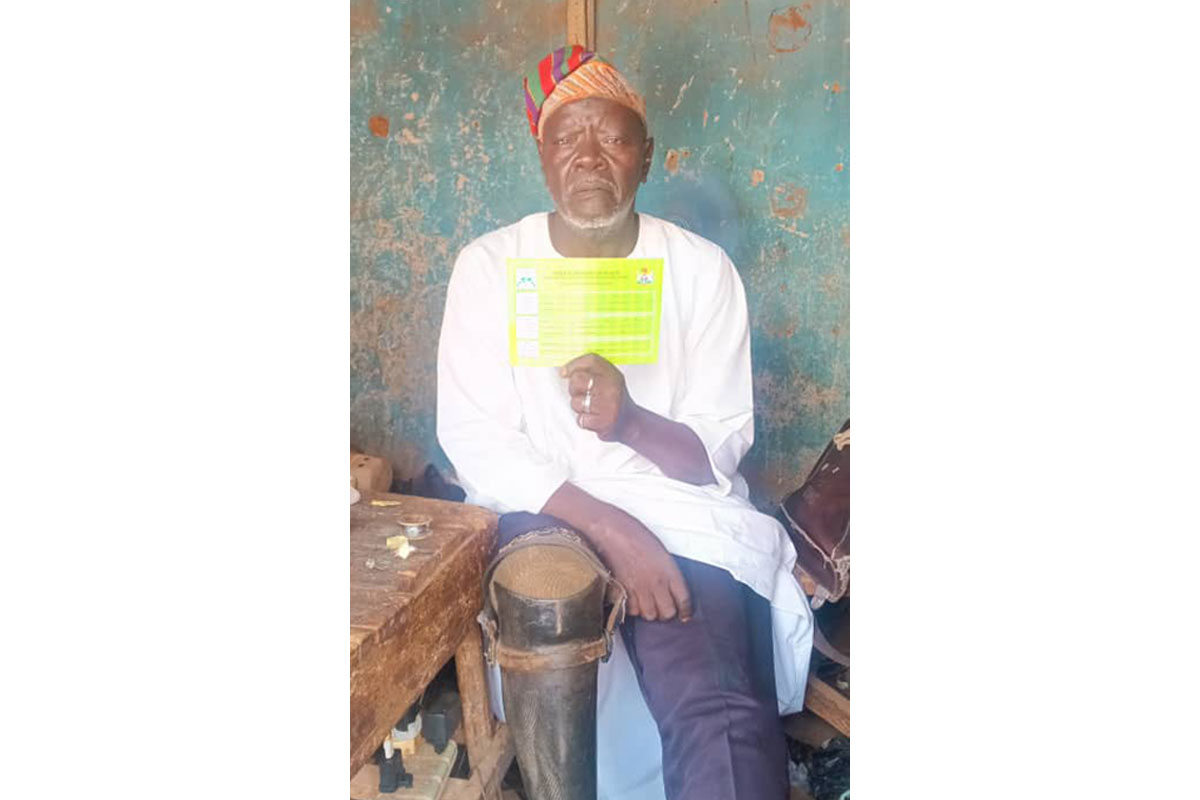
“A lot of our members in the special needs community also took the vaccine immediately when they heard about it because they realised it was for their own good.
“I want to appeal to the government to remember us because the neglect those of us with special needs are facing is too much, especially with regard to accessing healthcare.
“Many of us are forced to rely on local herbs and self-medication when we fall sick because getting treatment at the hospital is quite difficult.
“This is why the mpox vaccination, which was free, was largely embraced by our people – because it was a relief in some ways,” Haruna said.
“For our safety and our future”
In Ungwan Rimi community, a densely-populated area in the northern part of Kaduna, Simon Boniface, 31, and 23-year-old Ebrahim Mohamed are among dozens of residents who trooped out during the statewide ten-day mpox vaccination exercise to take the protective shot. Initially sceptical of the safety of the vaccine – circulating, unfounded rumours had made their way to their ears – they embraced it after seeing prominent members of the community queue up.
“We feel happy to have taken the vaccine. We took it for our safety and our future because we believe that prevention is better than cure,” Boniface, who spoke for the pair, said.
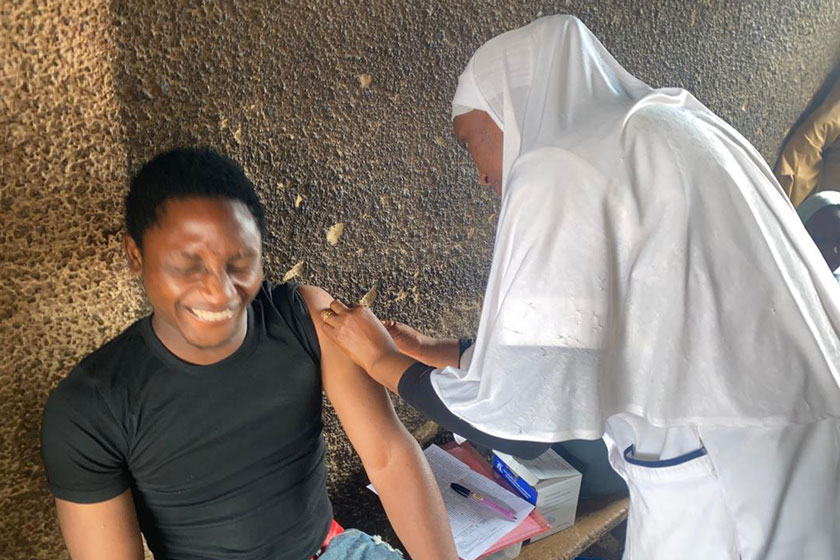
In the past couple of years, mpox has caused panic in many communities across Nigeria, including in Kaduna state, where 14 confirmed cases have been recorded in the last two months. A zoonotic viral disease, it has been endemic in parts of Africa since the 1970s, causing flu-like symptoms and painful skin lesions.
Since 2022, mpox has twice been declared a Public Health Emergency of International Concern (PHEIC) by the World Health Organization. In May 2025, the rate of new infections began to slide into retreat across Africa, but in the year to September, 163 people continent-wide had lost their lives to the virus.
The Democratic Republic of the Congo has borne the brunt of the outbreak, but Nigeria has not escaped. By June this year, 34 out of Nigeria’s 36 states had reported suspected cases of the disease. There have been hundreds of cases and three fatalities reported between January and mid-April 2025, according to the Director General of the Nigeria Centre for Disease Control and Prevention, Dr Jide Idris.
Have you read?
But the arrival of a vaccine arsenal has equipped the government with the means to fight back. Some 11,200 doses, sent by the US government and facilitated by Gavi, arrived in December 2024. Another 18,900 doses from Gavi were shipped to Nigeria in March 2025.
In Kaduna, 3,000 doses rolled out between 10 and 20 August 2025, marking the government’s commitment to bring the disease to a standstill. A second phase of the exercise planned to take place before the end of 2025 is targeted at expanding the number of people in the state to have taken the jab.
Crowds turn out for the vaccine – with more anticipated
Lamy Antonia Lebechukwu, a 57-year-old pharmacist with the National Primary Healthcare Development Agency (NPHCDA) credits early advocacy by health authorities, especially for large turnout that greeted the vaccination exercise in all locations across Kaduna. The joint state and federal vaccination team were already strategising how to handle the crowd expected to turn out when the second phase of the exercise gets underway soon, Lebechukwu told VaccinesWork.
“The success of this campaign will surely motivate others to come forward for the vaccine when the second phase kicks off soon,” she said.
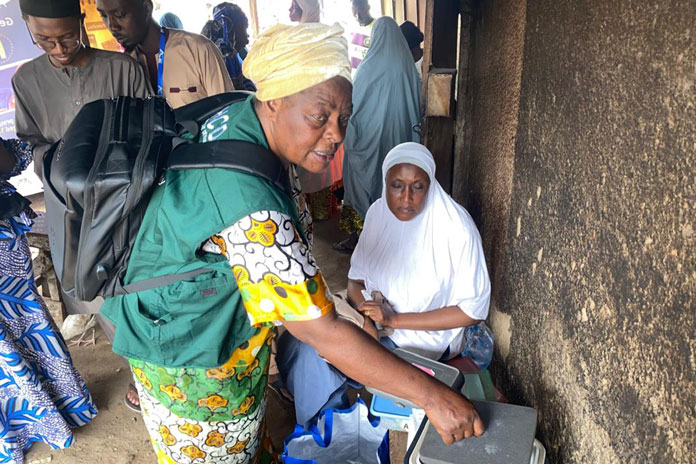
“The turnout in this first phase is more than what we expected. I must commend the health workers and even the residents for cooperating seamlessly to make this campaign a success.
“Those who took the vaccine are the ones who encouraged others to come forward. This is highly commendable,” she said.
Reaffirming the Kaduna Government’s commitment to shielding residents from the disease, Health Educator at the State Primary Healthcare Board Isah Yusha’u said that they were already strengthening collaboration with all stakeholders to ensure all those who needed the vaccine got it.
“The vaccination campaign witnessed great turnout and acceptance among the people.
“Traditional and community leaders who participated in stakeholder sensitisation meetings helped mobilise their subjects by using various platforms to encourage vaccination. This helped to build trust in the vaccine.
“Ahead of the second phase in a few weeks’ time, we are already strategising with all stakeholders to see how we can record more success.
“We are happy about this development and are confident mpox will soon be a thing of the past in Kaduna,” Yusha’u said.

